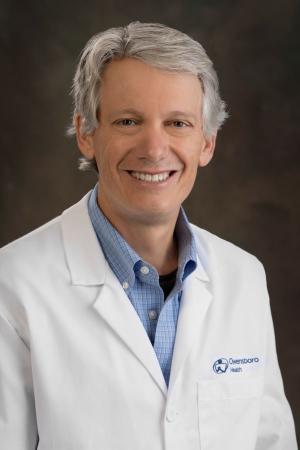Published on June 08, 2023
Tips for Being Happy

By Dr. W. Scott Black for Mind & Body
A few years back, a popular song encouraged us, "Don't Worry, Be Happy." For many, that seems easier said than done. Our day-to-day lives are busy and often filled with stressors. Fatigue and burnout are common concerns for many people. As a result, being happy can seem like an impossible goal.
Nevertheless, there has been a lot of work around the science of happiness, and a considerable amount of experience is available to help us create a roadmap as we undertake a journey in pursuit of that goal. Some fascinating work has come from the University of Pennsylvania, where researchers have developed the mnemonic PERMA to help remind us of important points along the road.
P stands for "Positivity." We all know those people who seem joyful all the time. A lot of that may be simply the way those folks are put together, and we're not all built that way. We can't simply make ourselves jolly all of the time. What we can do, however, is work on our optimism and gratitude. Reflecting on what is going well for us at this time and looking toward the future with hope can have a dramatic positive effect on our mental well-being.
E emphasizes the importance of "Engagement." We do best when we are really interested in something. Having a job, hobby, or other interest we can enthusiastically throw ourselves into entirely provides something for us to anticipate regularly doing eagerly. It can be particularly beneficial if this pursuit is difficult. Psychologists sometimes refer to this as "flow." Think of a talented guitarist playing a difficult piece of music. Fingers may be flying up and down the neck of the guitar, but the work seems effortless, and the musician is oblivious to the surroundings. That is flow. This may be an extreme example, but we can all learn from the idea and find things we look forward to doing.
R reminds us of the importance of "Relationships." People are herd animals. We want to be accepted by others. A few happy hermits are out there, but most of us feel more comfortable as part of the flock. However, relationships cut both ways. Positive relationships that make us feel loved and supported help build our happiness. Conflict with others does the opposite. Too often in our society, we choose sides on some issue and then scream at the other side about how wrong they are. Television and social media have exacerbated this and made it a daily occurrence. Positive relationships require work. We can find common ground and work to support one another.
M is for "Meaning." We all want to feel like what we are doing makes a difference. Why go through the effort if it is for nothing? Religion and spirituality can provide meaning in our lives. We can also find meaning in our work, relationships, hobbies, or service to others. Providing help to another person for no reason other than to see that person do better is one of the most powerful tools available to improve our happiness.
The letter A finishes the mnemonic by reminding us that we are happier when we have a sense of "Accomplishment" in our lives. Whether we recognize on our own that we have done an excellent job or others note it, a sense of accomplishment supports our self–confidence and belief that we can get things done. Psychologists call this self–efficacy or belief in our ability to control our lives. Believing that we can positively impact our future is very reassuring and can contribute to an overall sense of happiness and well-being.
When another famous author wrote about truths that were self–evident, he specifically identified the pursuit of happiness. What he talked about over 200 years ago is still very much true today. Happiness is a pursuit rather than a final destination. The road to happiness is constantly changing. There are curves in that road. Sometimes we run into construction or unexpected weather. How we choose to travel can make a big difference. By remembering PERMA, it can help to keep us moving along the right path.
W. Scott Black, MD, is a primary care sports medicine physician with Owensboro Health Medical Group Lifestyle and Sports Medicine.
About Owensboro Health
Owensboro Health is a nonprofit health system with a mission to heal the sick and to improve the health of the communities it serves in Kentucky and Indiana. The system includes Owensboro Health Regional Hospital, nationally recognized for design, architecture and engineering; Owensboro Health Muhlenberg Community Hospital; Owensboro Health Twin Lakes Medical Center; the Owensboro Health Medical Group comprised of over 350 providers at more than 30 locations; four outpatient Healthplex facilities, a certified medical fitness facility, the Healthpark; a weight management program, and the Mitchell Memorial Cancer Center.
On average each year, we have more than 19,000 inpatient admissions, deliver 2,000 babies and provide the region’s only Level III NICU. Owensboro Health physicians perform nearly 33,000 surgical procedures, including nearly 150 open-heart surgeries. Our physicians and staff have 90,000 Emergency Department visits and more than 1.25 million outpatient visits annually. Visit our home page for more information.